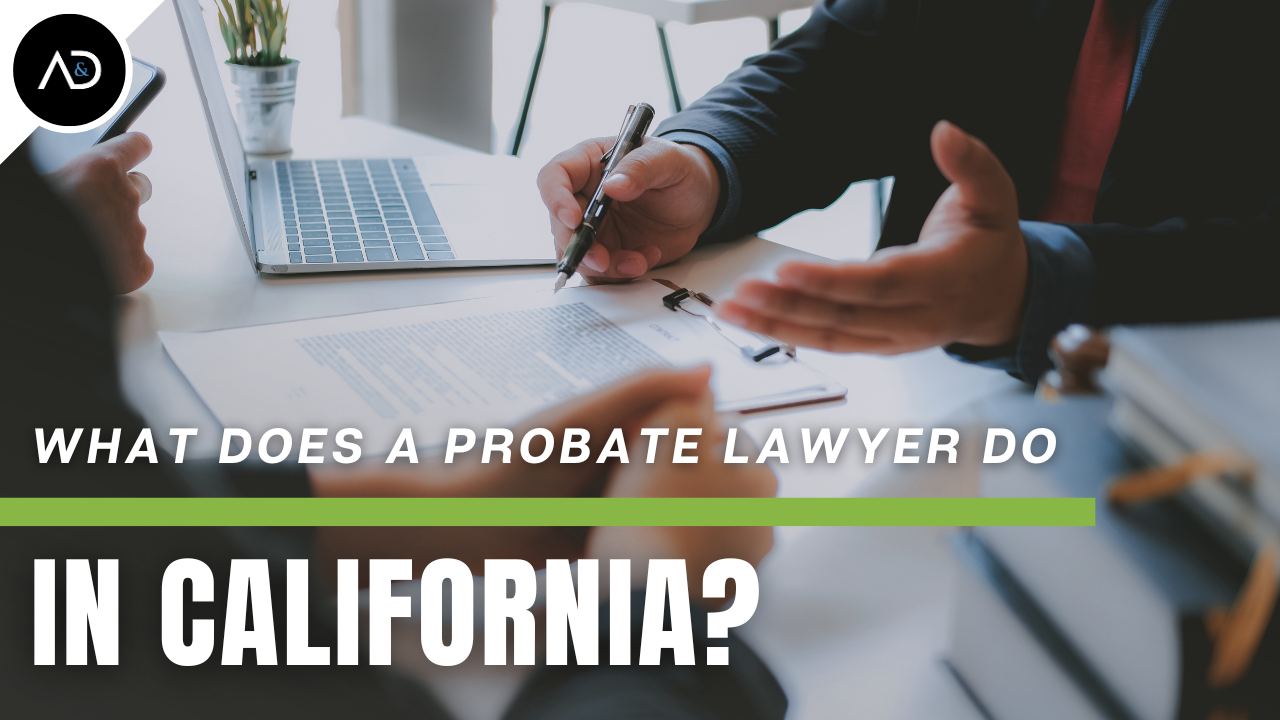
A probate lawyer is an attorney who practices in areas governed by the California Probate Code, which includes a wide range of legal matters involving wills, trusts, conservatorships, powers of attorney, and probate administration. In simpler terms, probate lawyers are often referred to as trust and estate attorneys or trust and will lawyers.
The Two Main Types of Probate Lawyers
Within the field of probate law, attorneys generally fall into one of two categories:
1. Transactional Probate Attorneys
These lawyers handle non-contested matters and focus on guiding clients through the administrative side of:
- Probate proceedings (when someone dies with or without a will)
- Trust administration
- Powers of attorney and advanced health care directives
- Conservatorship filings with no expected objections
Their role is to ensure that the estate is managed and distributed according to the law, while avoiding disputes.

2. Probate Litigation Attorneys
Litigation attorneys step in when disputes or legal challenges arise. These cases often involve:
- Will contests
- Trust contests
- Breach of fiduciary duty claims against executors or trustees
- Disputes over accountings, distributions, or asset valuations
- Financial elder abuse claims
- Contested conservatorship proceedings
Probate litigation is complex and can quickly become contentious, requiring attorneys who are experienced in both probate law and courtroom strategy.
Conservatorship Cases: A Middle Ground
Conservatorship matters can fall into either category:
- If the conservatorship is uncontested and administrative in nature, a transactional attorney may handle the process.
- If there are objections or family disputes, the case becomes a litigation matter requiring a lawyer with courtroom experience.
Choosing the Right Probate Attorney
Some probate lawyers focus exclusively on either transactional work or litigation. Others may handle both, depending on the size and structure of the firm. However, in California, law firms that focus solely on trust and estate litigation are relatively rare.

If you are facing a disputed trust, will, or conservatorship matter, it is especially important to find a law firm that specializes in probate litigation. These cases involve nuanced laws, strict procedural rules, and high emotional stakes. Hiring a firm with the right expertise can make a critical difference in the outcome.
Conclusion
A probate lawyer’s role depends largely on whether the legal matter is administrative or contested. For routine estate matters, a transactional probate attorney can provide efficient guidance. For complex disputes, seek a dedicated litigation team with deep experience in California’s Probate Code.
If you’re unsure whether you need legal help, consider scheduling a free consultation with an experienced probate lawyer. A good lawyer can quickly assess your situation and guide you on the best course of action.

